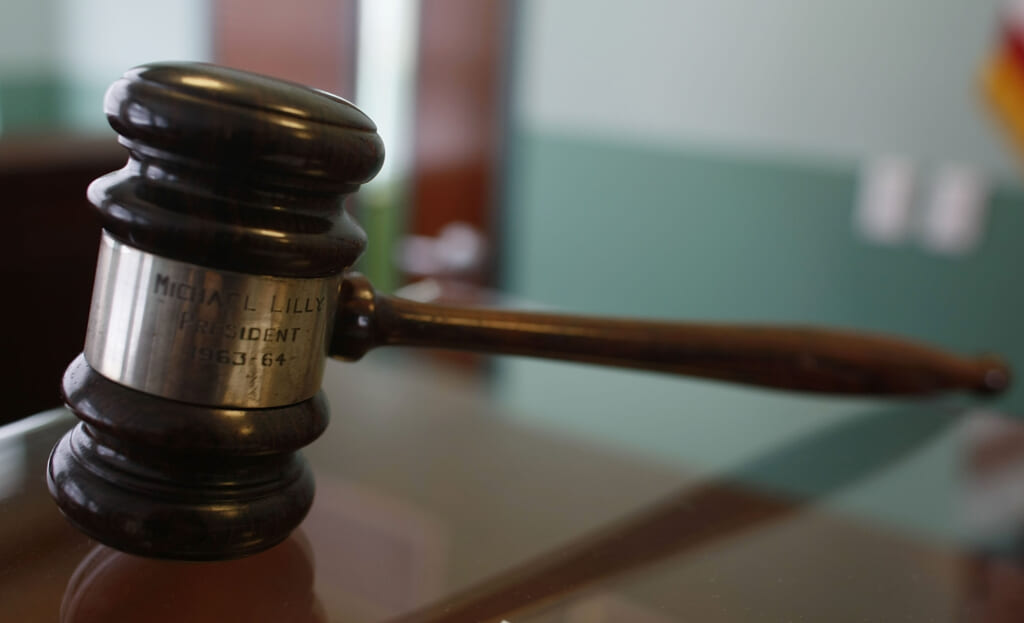Group seeks to disbar prosecutors who wrongfully sent 3 Black men to prison for 24 years
“A law license is a privilege,” said Cynthia Godsoe, a professor at Brooklyn Law School and member of Accountability NY. “We can't have prosecutors who commit egregious and often repeated misconduct.
Accountability NY, a coalition of law professors and public-interest groups, has filed professional complaints against dozens of current and former prosecutors in New York City who have been criticized by judges for misconduct in the past.
Read More: Detroit requests disbarment of ‘Kraken’ team over election lawsuits
According to Gothamist, the complaint cited prior misconduct findings from judges that range in action and severity. In some cases, courts found prosecutors withheld evidence favorable to the defense or failed to correct witnesses’ false testimony at trial. Other instances found assistant district attorneys made inflammatory comments or asked inappropriate questions during cross-examinations and closing arguments.
“A law license is a privilege,” said Cynthia Godsoe, a professor at Brooklyn Law School and member of Accountability NY. “We can’t have prosecutors who commit egregious and often repeated misconduct. It’s too dangerous for clients and it also undermines lawyers as a whole, and the rule of law.”
The “professors or any other individuals are free to make a complaint, should they have issue with any attorney representation or professional conduct,” said Lucian Chalfen, a spokesperson for the Office of Court Administration, in a statement to Gothamist. “If they feel that additional resources, short of publicity stunts, are needed to monitor the professional conduct of any attorney, they can make their case to the appropriate parties to further create and fund it.”

On Monday, Godsoe and four other law professors with Accountability NY sent 21 complaints against prosecutors in Queens to New York’s court-appointed grievance committee to investigate allegations of wrongdoing. One case, in particular, involved three men who were recently freed after they were wrongfully convicted and served 24 years behind bars.
Gothamist reported in March, George Bell, Gary Johnson, and Rohan Bolt –three Black men—were ordered to be freed by a Queens judge after serving time for the 1996 murders of a check-cashing store owner and an off-duty police officer in East Elmhurst. Judge Joseph Zayas found the trio had been wrongfully convicted because Queens prosecutors made false statements at trial, and nd failed to turn over critical evidence pointing to alternative suspects.
The trial prosecutors on the case, Charles Testagrossa and Brad Leventhal, have resigned from their high-ranking positions in the Nassau County and Queens District Attorney’s Offices. Complaints against their conduct were included in the Accountability NY action.
Read More: The Decarceration Collective’s mission to free those wrongfully sentenced under ‘three strikes’ law
According to a separate Gothamist report, the murder charges were brought by the late Queens DA Richard Brown. At the time, former Mayor Rudy Giuliani and then NYPD Commissioner Howard Safir both said the men deserved the death penalty.

Johnson, who was 22 at the time of his arrest, described his conflicted feelings of new freedom after servicing two decades for a crime he didn’t commit.
“I don’t know where to begin because at this moment I feel extremely joyful,” he said.
Bell also released a statement, read aloud during a virtual hearing accorifng to the report.
“I was only 19 years old. I was just a kid, no clear understanding of the law or under my own rights,” Bell said, speaking from Green Haven Correctional Facility. “Today is the day I am going home.”
Read More: Black man wrongfully on death row for killing white woman freed after 26 years
According to a September 2020 report by the Washington Post, 54 percent of those defendants wrongfully convicted are victims of official misconduct, with police involved in 34 percent of cases, prosecutors in 30 percent, and some cases involving both police and prosecutors. A study by the National Registry of Exonerations only found 4 percent of prosecutors involved in those convictions were disciplined, but the penalties were “comparatively mild” and only three were disbarred.
The study researched five types of misconduct that lead to wrongful convictions: witness tampering, misconduct in interrogations, fabricating evidence, concealing exculpatory evidence and misconduct at trial. Results of the study also found that Black defendants were more likely than white defendants to be victims of misconduct, 57 percent to 52 percent. The difference was much larger for drug crimes at 47 to 22 percent and in murder cases, 78 to 64 percent.
“Misconduct by police, prosecutors and other law enforcement officials is a regular problem,” said Samuel R. Gross, an emeritus professor at the University of Michigan Law School and a co-founder of the registry, “and it produces a steady stream of convictions of innocent people.” And because the data for exonerations is gathered randomly, from news reports and legal rulings, with no central repository of court statistics, “it is clear to us that misconduct occurs in many more cases” than the registry tracks.
Have you subscribed to theGrio’s “Dear Culture” podcast? Download our newest episodes now!
TheGrio is now on Apple TV, Amazon Fire and Roku. Download theGrio.com today!
More About:Crime






